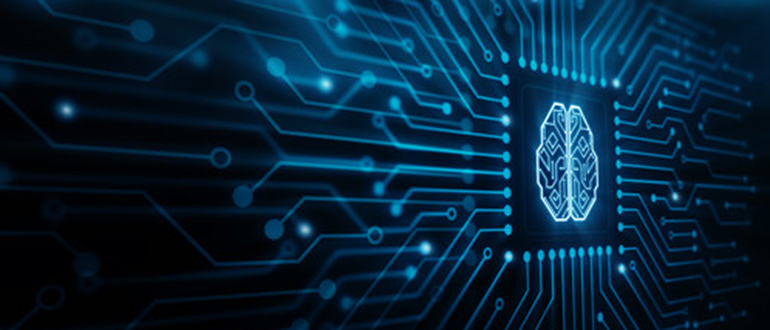
AI systems no longer serve as predictive engines or passive assistants. Rather, they are starting to function with autonomy and judgment. That is where agentic AI comes into the picture. Agentic AI serves as the brainpower behind strategic insights, real-time decisions and operational efficiency.
Around 25% of companies already using AI have a probability of introducing agentic AI pilots in 2025. By the year 2027, the number is expected to rise to 50%, a clear indication of the emerging need for agentic AI.
If you wish to eliminate inefficiencies in your workflows and unlock new levels of accuracy, speed and intelligence, being aware of intelligent AI systems matters.
Understanding Agentic AI
Agentic AI refers to intelligent AI systems that can operate autonomously, make decisions, execute complex tasks and pursue goals, eliminating the necessity of human instruction every time. Moreover, it helps overcome the limitations of the generative models and traditional automation through the integration of proactive actions and autonomous decision-making within defined parameters.
Agentic AI is capable of:
- Using context and memory to make well-informed decisions.
- Effectively learning from outcomes and making the necessary adjustments.
- Breaking down the complex goals into simple, actionable tasks.
- Interacting with APIs and external tools.
Why is the Use of Agentic AI on the Rise?
Today, accuracy, efficiency and autonomous operations have become more crucial for organizations than ever before. Thus, there is a massive dependence on agentic AI. Here is how leveraging agentic AI can benefit businesses.
- Radical Efficiency
Agentic AI is capable of making crucial decisions much faster than humans. Besides, it can handle thousands of interactions at the same time. Hence, you can expect them to work around the clock as well as adapt to the feedback loop effortlessly.
- Improved Innovation
Due to resource constraints and cognitive bias, humans often overlook various solutions to specific problems. However, with agentic artificial intelligence, you don’t have to worry. Agentic AI can test hypotheses, explore different unconventional paths and suggest innovative solutions.
- Autonomous Scalability
It can be difficult to handle several users or systems at a time when you have a human-only setup. However, relying on agentic artificial intelligence can make things easier. Intelligent AI systems will allow you to coordinate multiple systems and serve thousands of users effortlessly.
- Strategic Decision-Making
In this competitive era, effective decision-making matters a lot for optimum success. Agentic AI is well-trained to support high-stakes decisions. Whether it is investment planning or deciding the pricing models, these tools can help make accurate decisions with the use of predictive analysis.
- Cognitive Load Reduction
The humans mainly focus on strategy and end up taking a lot of stress. On the other hand, agentic AI can effortlessly and effectively handle data synthesis, optimization and execution, serving as a high-performing member of your team and helping lower cognitive load.
Common Applications of Agentic AI
There are several fields where agentic AI is already in use. Delve into the key applications of these intelligent AI systems!
- Customer Service
Agentic AI is likely to resolve about 80% of all customer service issues without the need for human intervention by the year 2029. Yes, you read it right!
AI agents go way beyond just answering the queries of the customers and assist in the detection of escalation risks, pull out the required data from the CRMs, and make helpful recommendations for the resolution of the problems.
- Marketing and Growth Automation
Every organization spends a lot of time and effort on marketing-related tasks. However, with agentic AI, you can effectively automate tasks and get more time to work on other strategic tasks.
Wondering how? Well, the intelligent tools are capable of handling the entire campaign cycle. From generating marketing copies to analyzing conversion data and running A/B tests, they are capable of handling everything. Moreover, they can even adjust spending across different platforms.
- Healthcare and Diagnostics
The application of agentic AI isn’t limited to just marketing and customer service. Instead, they are gradually being developed to simplify workflows in the healthcare setting. To improve detection accuracy and simplify treatment, 38% of medical professionals utilize AI-powered computer-assisted diagnostics that can evaluate patient data and medical imaging. Agentic AI, with the supervision of physicians, is capable of reviewing medical records, adjusting treatment plans and recommending diagnostic tests.
- Software Engineering
With the advancement of agentic AI, more software engineers are likely to leverage code assistants during software development. The tools can help autonomously generate quality code and test cases while scaling deployment.
All these will help free up the developers. As a result, they will have more time available to focus on strategic tasks.
- Financial Services
Agentic AI proves to be helpful for financial organizations by enhancing their productivity. The AI agents come with the capability to automate repetitive tasks like transaction processing and compliance checks.
The core aim is to save the time of the professionals and allow them to work on more strategic tasks. Moreover, it can help minimize the potential risk of human errors.
- Cybersecurity
Today, the shortage of appropriate resources has become a major challenge for the safety and security of computer systems and digital infrastructure. The use of agentic AI can help address this issue.
AI agents can autonomously detect cyberattacks, allow the identification of potential vulnerabilities, and recommend solutions to resolve the problems.
Wrapping Up
The demand for autonomous decision-making systems like agentic AI is on the rise these days. The main goal is to minimize human intervention, enhance operational efficiency and boost the productivity of organizations.
Agentic AI finds wide applications in various sectors, from software engineering to cybersecurity and healthcare services. Its use will continue to increase over the years and benefit organizations in several ways. Relying on these systems will help you to make better decisions and enable you to remain ahead of the curve.

